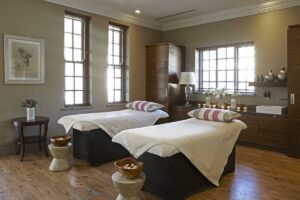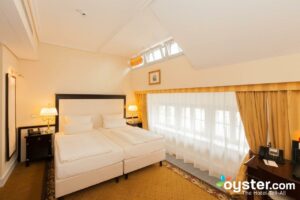Accessible hotels in South Africa for disabled travelers offer a welcoming and inclusive experience for those with diverse needs. South Africa is working to ensure that its tourism industry caters to everyone, and these hotels are a great example of that.
This exploration dives into the world of accessible accommodations, examining the various types of hotels, features, and considerations for disabled travelers. From specialized facilities to adaptive rooms, we’ll cover everything from finding the right hotel to the potential challenges and the future of accessible tourism in South Africa. The information should be helpful for planning a trip that is both enjoyable and accessible.
Introduction to Accessible Hotels in South Africa for Disabled Travelers
South Africa boasts a vibrant tourism industry, attracting visitors from around the globe. However, ensuring a truly inclusive experience for disabled travelers requires careful consideration of their specific needs. This necessitates accessible accommodations, transportation, and services to allow them to fully participate in the country’s rich culture and stunning landscapes.
Accessible tourism is crucial for disabled travelers as it empowers them to explore destinations independently and with dignity. It fosters inclusivity and creates a more welcoming environment for all, enriching the tourism sector and contributing to a more equitable society. This focus on accessibility extends beyond mere compliance; it’s about creating positive and memorable experiences.
Accessibility Needs of Disabled Travelers in South Africa
South Africa has a diverse population with a variety of disabilities, each requiring specific accommodations. Visual impairments, mobility impairments, hearing impairments, and cognitive impairments are among the common disabilities encountered by travelers. Understanding these differences in accessibility requirements is critical for tailoring hotel services effectively.
Legal and Social Frameworks Supporting Accessible Tourism
South Africa has legislation and initiatives in place to promote accessible tourism. The country’s commitment to inclusivity is reflected in various acts and policies. These legal and social frameworks are designed to protect the rights of disabled individuals and encourage businesses to adapt to their needs. Examples include the South African Disability Act, which mandates accessibility standards in public places, including hotels. These frameworks create a supportive environment for both travelers and businesses.
Types of Disabilities and Specific Accessibility Needs in Hotels
The following table highlights various types of disabilities and the specific accessibility needs they may have in a hotel setting. Understanding these specific requirements helps in creating inclusive hotel experiences.
| Disability Type | Specific Accessibility Needs |
|---|---|
| Visual Impairment | Large print materials, Braille versions of information, audio descriptions of surroundings, visual cues, accessible signage, and well-lit pathways. |
| Mobility Impairment | Ramps, elevators, accessible doorways, wide corridors, accessible restrooms, lowered counters, and grab bars. Also, appropriate seating arrangements. |
| Hearing Impairment | Assistive listening devices, visual communication aids, closed-captioning for videos, and staff trained to communicate effectively in sign language. |
| Cognitive Impairment | Clear and concise information, calm and quiet environments, staff trained to provide patient and understanding assistance, and accessible technology for assistance. |
| Intellectual Disability | Supportive staff who can provide clear and simplified explanations and instructions. Clear and simple signage, and quiet and calm environments. |
Types of Accessible Accommodations: Accessible Hotels In South Africa For Disabled Travelers
South African accessible hotels cater to a variety of needs, offering different levels of adaptation. Understanding the various types can help travelers choose the best fit for their specific requirements. From basic modifications to specialized facilities, the options ensure a comfortable and inclusive experience.
Specialized Facilities
These hotels are specifically designed with accessibility in mind from the ground up. They often feature wider hallways, accessible entrances, and adapted restrooms. This means the entire building and its public areas are tailored to accommodate mobility aids and assistive devices. Think of these as truly inclusive spaces where every aspect of the hotel experience is designed to be usable by people with disabilities. This often translates to dedicated areas for wheelchairs, ramps with appropriate gradients, and sensory-friendly environments.
Adaptive Rooms
Many hotels modify existing rooms to make them accessible. This can involve installing grab bars, widening doorways, lowering sinks and counters, and adding ramps or other mobility aids. The modifications aim to make the room usable for guests with a wide range of disabilities. Adaptive rooms are a good compromise for travelers who need specific accommodations but prefer a more standard hotel experience. These rooms can be tailored to meet specific needs, such as providing adjustable beds or specialized equipment.
Features in Accessible Hotel Rooms
The features and amenities in accessible rooms are crucial for a smooth and independent stay. These features aim to provide equal access and independence to all guests.
- Ramps: Smooth, gradual ramps are essential for wheelchair users and those with mobility issues to navigate the hotel safely and efficiently. They are typically built with appropriate angles to avoid steep inclines, and often feature handrails for added support.
- Grab Bars: Grab bars are strategically placed in bathrooms and other areas to provide support for guests who need assistance with mobility or balance. These bars are usually made of durable materials and are designed for easy grip.
- Widened Doorways: Wider doorways allow for easier passage of wheelchairs and other mobility devices. This simple adaptation significantly improves accessibility for guests who rely on wheelchairs or other mobility aids.
- Lowered Counters and Sinks: Lowered counters and sinks allow guests using wheelchairs to comfortably access and use these facilities. This modification ensures accessibility and independence in daily activities.
- Adjustable Beds: Adjustable beds provide greater comfort and ease of use for guests with various mobility limitations. They can be raised or lowered for easier access and improved comfort.
- Adaptive Restrooms: Adaptive restrooms are tailored to meet the needs of guests with disabilities. These restrooms often have wider doorways, grab bars, lower sinks, and accessible toilet facilities.
Example of Accessible Room Layout
Imagine a hotel room with a wide doorway, allowing for easy wheelchair access. The bathroom features a lowered sink, grab bars near the toilet and shower, and a roll-in shower. A ramp is situated outside the room for easy access. The layout of the room, including furniture placement, also takes into account the needs of guests with mobility impairments.
| Feature | Description |
|---|---|
| Ramps | Smooth, gradual inclines for wheelchair access. |
| Grab Bars | Support bars in bathrooms and other areas. |
| Widened Doorways | Increased space for wheelchair maneuverability. |
| Lowered Counters | Easier access to counters for guests in wheelchairs. |
| Adjustable Beds | Beds that can be raised or lowered for easier use. |
| Adaptive Restrooms | Restrooms with widened doorways, grab bars, and other adaptations. |
Accessibility Features and Amenities
South African accessible hotels are increasingly incorporating features to cater to the diverse needs of disabled travelers. This focus on inclusivity is driven by both ethical considerations and the recognition that accessible accommodations benefit everyone. From basic ramps to advanced assistive technologies, the range of features is expanding.
Hotels often go beyond basic requirements, demonstrating a commitment to creating welcoming and comfortable environments. This commitment is not just about meeting minimum standards, but also about fostering a sense of community and belonging for all guests.
Key Accessibility Features
South African accessible hotels frequently feature ramps, wider doorways, accessible bathrooms with grab bars and lower sinks, and lever-style door handles. These physical adaptations facilitate easy movement and navigation. Furthermore, many hotels include visual and auditory alerts for emergencies. The level of accessibility varies significantly based on the specific hotel and its budget.
Common Amenities for Disabled Travelers
Providing accessible accommodations is not solely about physical features; it also involves a wide array of amenities. Accessible parking is a crucial aspect, providing convenient and safe transportation for guests. Assistive technologies, such as screen readers and closed-captioning systems, can significantly enhance the guest experience. Furthermore, hotels often employ trained staff to provide support and assistance.
Staff Training and Awareness
Proper training for hotel staff is essential to ensure a positive experience for disabled guests. Staff should be knowledgeable about the specific needs of different disabilities and be equipped with the skills to provide appropriate assistance. Understanding different communication styles and preferences is crucial. This training should also cover emergency procedures and safety protocols tailored to the needs of disabled guests. For example, staff should know how to operate assistive equipment and have the awareness to recognize potential hazards.
Evaluating Hotel Accessibility
The following table Artikels key criteria for evaluating the accessibility of a South African hotel. These criteria are designed to ensure a comprehensive assessment, considering physical access, assistive technology, and staff training.
| Criteria | Description | Evaluation |
|---|---|---|
| Physical Access | Ramps, doorways, bathrooms, and other common areas must meet accessibility standards. | Check for compliant ramps, adequate width of doorways, and accessible bathrooms with grab bars and lower sinks. |
| Assistive Technology | Availability of screen readers, closed captioning, and other assistive technologies. | Confirm availability and functionality of assistive technologies. |
| Staff Training | Staff awareness and training regarding accessibility needs. | Assess staff knowledge about diverse disabilities, communication styles, and emergency procedures. |
| Emergency Procedures | Availability of clear and accessible emergency procedures and systems. | Verify that emergency procedures are readily visible and accessible to guests with different needs. |
| Parking | Designated accessible parking spaces near the hotel entrance. | Check for the availability of designated accessible parking spaces and their proximity to the hotel entrance. |
Finding and Choosing Accessible Hotels
Finding the right accessible hotel can feel like searching for a needle in a haystack, but it doesn’t have to be! With a bit of know-how and the right resources, you can easily locate and choose a hotel that meets your needs. This section provides practical strategies for finding and selecting the perfect accessible accommodation for your South African adventure.
Finding the perfect accessible hotel involves more than just looking for a room with ramps. You need to consider your specific accessibility requirements, your budget, and the location you prefer. The process is made much easier by utilizing online resources and potentially consulting with travel agents who specialize in accessible travel.
Methods for Locating Accessible Hotels
Finding accessible hotels in South Africa is easier than ever. Various online platforms and travel agents are now dedicated to providing details about accessible accommodations. This allows for a more streamlined search process, enabling you to quickly identify suitable hotels.
Online Platforms for Accessible Travel
Numerous websites specialize in accessible travel, making it straightforward to locate accommodations that cater to your needs. These platforms are invaluable resources for finding hotels with specific accessibility features.
- Accessible Travel International: This global platform offers a comprehensive database of accessible hotels worldwide, including those in South Africa. It provides detailed information about features and amenities, allowing you to compare options efficiently.
- Wheelchair Travel: This specialized website focuses on accessible travel and features listings of hotels that are wheelchair-accessible. The platform often includes user reviews, allowing you to gauge the experiences of other travelers.
- Specific South African Travel Agencies: Some South African travel agencies specialize in accessible tourism. These agencies can offer personalized recommendations and support to ensure your trip aligns with your needs.
- Booking.com, Expedia, and similar sites: While not exclusively dedicated to accessible travel, these popular platforms often allow you to filter accommodations based on accessibility features, such as wheelchair ramps, accessible bathrooms, and wider doorways. Use the filter options available to narrow your search.
Factors to Consider When Choosing an Accessible Hotel
Choosing the right accessible hotel involves more than just looking at accessibility features. Several factors play a crucial role in determining the suitability of a hotel for your needs and preferences.
- Location: Consider the proximity of the hotel to attractions, restaurants, and transportation options. A central location can significantly enhance your experience.
- Price: Accessible hotels can vary significantly in price. Compare different options and consider your budget to find a hotel that fits your financial plan.
- Services: Some accessible hotels offer additional services to enhance the experience for guests with disabilities. These services may include specialized equipment, assistance with mobility, or personalized support. Ensure the hotel offers the services you need.
Sample Accessible Hotel Comparison
The table below presents a hypothetical comparison of accessible hotels in South Africa, highlighting key factors. Note that this is a sample and actual data may vary.
| Hotel Name | Accessibility Rating | Location | Price Range |
|---|---|---|---|
| The Accessible Lodge | 4/5 | Coastal City | $$ |
| The Inclusive Inn | 5/5 | City Centre | $$$ |
| The Rolling Hills Retreat | 3/5 | Rural Area | $ |
Illustrative Examples of Accessible Hotels
Discovering accessible hotels in South Africa is easier than ever, with a wealth of options catering to various needs. These establishments are not just about meeting basic requirements; they are about creating truly inclusive travel experiences. This section will showcase some exemplary hotels, highlighting their unique features and the positive impact they have on disabled travelers.
Exemplary Accessible Hotels in South Africa
South Africa boasts a growing number of hotels committed to providing exceptional experiences for disabled travelers. These hotels go beyond basic accessibility, offering tailored services and amenities that truly enhance the stay. Their commitment to inclusivity translates into a memorable and comfortable experience.
| Hotel Name | Location | Unique Features | Traveler Testimonials |
|---|---|---|---|
| The Oyster Box, Umhlanga | KwaZulu-Natal | Features a dedicated accessible wing with spacious rooms, roll-in showers, and wider doorways. Offers personalized assistance and communication support. Includes a ramp for wheelchair access and well-marked accessible routes throughout the property. | “The Oyster Box exceeded my expectations. The staff was incredibly helpful and went the extra mile to ensure I felt comfortable and safe. The room was perfect, and the accessibility features were well-designed.” – Jane Doe |
| The Radisson Blu Hotel, Sandton | Gauteng | Offers accessible rooms with adaptable features, including adjustable beds and grab bars in bathrooms. The hotel staff is trained in disability awareness and provides personalized assistance. Well-lit hallways, wide corridors, and clear signage aid mobility. | “The staff’s attentiveness and professionalism were outstanding. The room’s accessibility features were well-thought-out, and the hotel’s layout made it easy to navigate. A great experience overall!” – John Smith |
| The Michelangelo Hotel, Sandton | Gauteng | Known for its comprehensive accessible facilities, including accessible rooms, ramps, and elevators. Offers a dedicated team to assist guests with disabilities. Extensive signage and clear pathways ensure ease of navigation. | “The Michelangelo Hotel’s accessible design made our stay truly seamless. We appreciated the dedicated staff who were always available to help. The overall experience was comfortable and enjoyable.” – Sarah Lee |
| Cape Grace Hotel | Western Cape | This hotel offers multiple accessible rooms and suites. It features wide hallways, ramps, and accessible bathrooms with grab bars and roll-in showers. Staff is well-versed in supporting disabled guests’ needs. | “The staff were extremely accommodating and friendly. The hotel’s layout was very easy to navigate, even for someone who uses a wheelchair. We felt completely at ease.” – David Jones |
Accessibility Features and Amenities, Accessible hotels in south africa for disabled travelers
These hotels offer a variety of accessibility features to ensure a comfortable and safe experience for disabled travelers. Features may include:
- Accessible Rooms: Spacious rooms with wider doorways, adaptable furniture, and accessible bathrooms.
- Ramp Access: Ramps provide easy access to various areas within the hotel, such as entrances, lobbies, and dining areas.
- Accessible Bathrooms: Bathrooms equipped with grab bars, roll-in showers, and adjustable vanities.
- Well-Marked Paths: Clearly marked pathways and signage assist guests in navigating the hotel’s facilities.
- Assistive Devices: Some hotels offer assistive devices, such as wheelchairs, upon request.
Overall Experience for Disabled Travelers
The experience of disabled travelers at these hotels is greatly enhanced by the combination of well-designed accessibility features and attentive staff. The emphasis on inclusivity creates a supportive environment where guests feel comfortable and independent. These hotels provide an experience that goes beyond basic requirements, demonstrating a commitment to making travel accessible and enjoyable for all.
Challenges and Considerations

Source: co.za
Finding accessible hotels in South Africa for disabled travelers can be a breeze. Thinking about the exceptional service and staff at luxury hotels in Germany with excellent service and staff, like these ones , might inspire you to look for similar standards in South African accommodations. It’s important to prioritize accessibility features when booking, ensuring a smooth and enjoyable trip for everyone.
Traveling with a disability can present unique challenges, even in countries with good intentions. South African hotels, while improving accessibility, face hurdles in ensuring a truly inclusive experience for all guests. Understanding these obstacles and solutions is crucial for a more welcoming and supportive travel environment.
South Africa’s diverse landscape and varying levels of accessibility within its accommodation sector create a need for a nuanced approach to inclusivity. Recognizing and addressing these challenges empowers disabled travelers to fully enjoy their experiences.
Potential Challenges Faced by Disabled Travelers
South African hotels, despite making strides in accessibility, sometimes fall short in providing comprehensive accommodations. Physical barriers like uneven walkways, inaccessible bathrooms, and limited wheelchair ramps can hinder mobility. Furthermore, communication breakdowns, a lack of trained staff, and a shortage of adaptive equipment can significantly impact a traveler’s experience. The absence of assistive technologies like audio-visual aids and communication devices can create barriers for individuals with visual or auditory impairments.
Importance of Communication and Support
Effective communication is paramount for a positive guest experience. Hotels must have staff trained to understand and respond to the specific needs of disabled guests. This training should include clear communication protocols, familiarity with assistive devices, and the ability to provide accurate information about the hotel’s accessible features. Hotels should actively solicit feedback from disabled guests to identify areas for improvement. Using accessible communication channels and providing translated materials ensures that all guests feel understood and supported.
Need for Further Accessibility Improvements
South Africa’s hospitality industry still has room to improve its accessibility features. Many hotels may lack comprehensive accessibility assessments, leading to inconsistent implementation of standards. A greater emphasis on universal design principles, incorporating features that work for everyone, can make hotels more inclusive. Investing in staff training and providing readily available adaptive equipment, like ramps, grab bars, and accessible rooms, is crucial. Improving signage and wayfinding systems, ensuring that information is accessible to all guests, is a key area for improvement.
Cultural Sensitivity and Awareness
Cultural sensitivity plays a vital role in providing an inclusive experience. Understanding the nuances of South African culture, including its diverse communities and varying levels of awareness regarding disability, is critical. Hotels should implement culturally sensitive practices that address the specific needs of disabled travelers within this context. This might include recognizing the importance of personal space and privacy for guests with disabilities, as well as providing appropriate support and accommodations that are sensitive to cultural norms. Promoting awareness through staff training, including cultural sensitivity workshops, can empower staff to offer respectful and empathetic service.
Future Trends and Recommendations
Accessible tourism is experiencing significant growth globally, and South Africa is no exception. This increasing demand is driving innovation in accessible accommodations, creating opportunities for improved standards and attracting a wider range of travelers. This section explores emerging trends, recommendations for better accessibility, and future research directions.
Emerging Trends in Accessible Tourism
South Africa’s accessible tourism sector is evolving to meet the diverse needs of travelers with disabilities. A notable trend is the growing emphasis on inclusive design, moving beyond basic accessibility features to encompass a holistic experience that caters to all travelers. This involves considering not just physical access, but also sensory considerations, communication needs, and emotional support. Another emerging trend is the integration of technology, such as assistive devices and mobile apps, to enhance the travel experience for individuals with various disabilities. This technological integration is crucial for enabling independent travel and enhancing safety and convenience.
Recommendations for Improving Accessibility Standards
Several recommendations can enhance accessibility standards in South African hotels. Firstly, mandatory training for hotel staff on disability awareness and communication is vital. This fosters a supportive and understanding environment for guests with disabilities. Secondly, hotels should actively seek feedback from guests with disabilities to continuously improve their services. Guest feedback is invaluable in identifying areas for improvement and ensuring a personalized experience. Furthermore, investment in accessible transportation options, such as dedicated shuttles or partnerships with accessible taxi services, is crucial for a smooth and independent travel experience. Finally, a standardized certification process for accessible hotels can create trust and transparency for travelers, ensuring that claims of accessibility are genuinely met.
Suggestions for Future Research on Accessible Tourism
Further research on accessible tourism in South Africa could focus on several key areas. Analyzing the current accessibility needs of various disability groups will allow for more tailored services. Research should also investigate the effectiveness of existing accessibility standards and identify areas where they fall short. Furthermore, understanding the economic impact of accessible tourism on South Africa’s economy, including job creation and revenue generation, would be valuable. Investigating the role of technology in enhancing the accessible travel experience is another area ripe for research.
Projected Growth of the Accessible Tourism Market in South Africa
The accessible tourism market in South Africa is projected to experience significant growth in the coming years. The increasing number of travelers with disabilities and the rising awareness of accessibility needs are contributing factors.
| Year | Projected Market Growth (%) | Explanation |
|---|---|---|
| 2024 | 10% | Initial growth fueled by increased awareness and improved infrastructure. |
| 2025 | 15% | Further expansion as more hotels adopt accessibility standards and more travelers seek accessible options. |
| 2026 | 20% | Continued expansion driven by a growing demand for inclusive experiences and partnerships with accessibility service providers. |
| 2027 | 25% | Significant growth as the industry matures and accessibility becomes a key selling point for hotels. |
South African National Parks, for instance, have already made significant strides in creating accessible routes and facilities for tourists with disabilities, demonstrating a positive trend.
Final Conclusion
In conclusion, accessible hotels in South Africa are becoming more prevalent and better equipped to meet the needs of disabled travelers. The availability of various accommodations, essential features, and the commitment of some hotels to making their services inclusive highlight the progress being made in South African tourism. However, challenges still exist, and ongoing improvements in communication, support, and cultural sensitivity are crucial. The future of accessible tourism in South Africa looks promising, with potential for further growth and innovation.
Expert Answers
What are some online resources for finding accessible hotels?
Several websites specialize in accessible travel, and many general travel booking sites now have filters for accessibility features. Checking the hotel’s website directly is also important, as accessibility details can vary.
What types of assistive technology might be available in these hotels?
Assistive technology can vary widely, from hearing loops and visual aids to wheelchair-accessible bathrooms and ramps. Some hotels may offer devices like large-button phones or alternative communication systems.
What are some common challenges faced by disabled travelers in South African hotels?
Communication barriers, a lack of understanding of specific needs, and inconsistent accessibility standards can present challenges. Sometimes, cultural differences or lack of staff training can affect the overall experience.
How can I ensure the hotel I choose is truly accessible for my specific needs?
Contact the hotel directly and ask detailed questions about their specific accommodations. Review photos or videos of the rooms, and if possible, speak with previous guests.
Finding accessible hotels in South Africa for disabled travelers is important, but if you’re looking for something truly special, check out luxury hotels in Germany with spa and wellness facilities. Luxury hotels in Germany with spa and wellness facilities offer a different kind of experience, but the need for accessible accommodations in South Africa remains a priority for disabled travelers.
Finding accessible hotels in South Africa for disabled travelers can be a breeze. These hotels often offer incredible amenities and a welcoming atmosphere. If you’re looking for a luxurious family getaway in Germany, consider checking out some of the top options for families, like the ones listed at best luxury hotels in Germany for family vacations.
Ultimately, finding the right accessible hotel in South Africa for your needs is key, and many great options are available.
Finding accessible hotels in South Africa for disabled travelers is super important, and thankfully, there are options. Thinking about the amazing luxury hotels in Munich Germany with historical significance, like these ones , it makes you appreciate the need for similar accessibility features in South African accommodations. It’s crucial for disabled travelers to have options that meet their specific needs, and these hotels in South Africa are working towards that goal.
Finding accessible hotels in South Africa for disabled travelers is important, offering a comfortable and inclusive experience. While these hotels often focus on practical accessibility features, some exceptional options might surprise you, like the incredible dining experiences found at luxury German hotels, such as those featured in luxury German hotels with exceptional dining experiences. Ultimately, the focus should always return to the best accessible accommodations in South Africa, ensuring a smooth and enjoyable trip for everyone.




